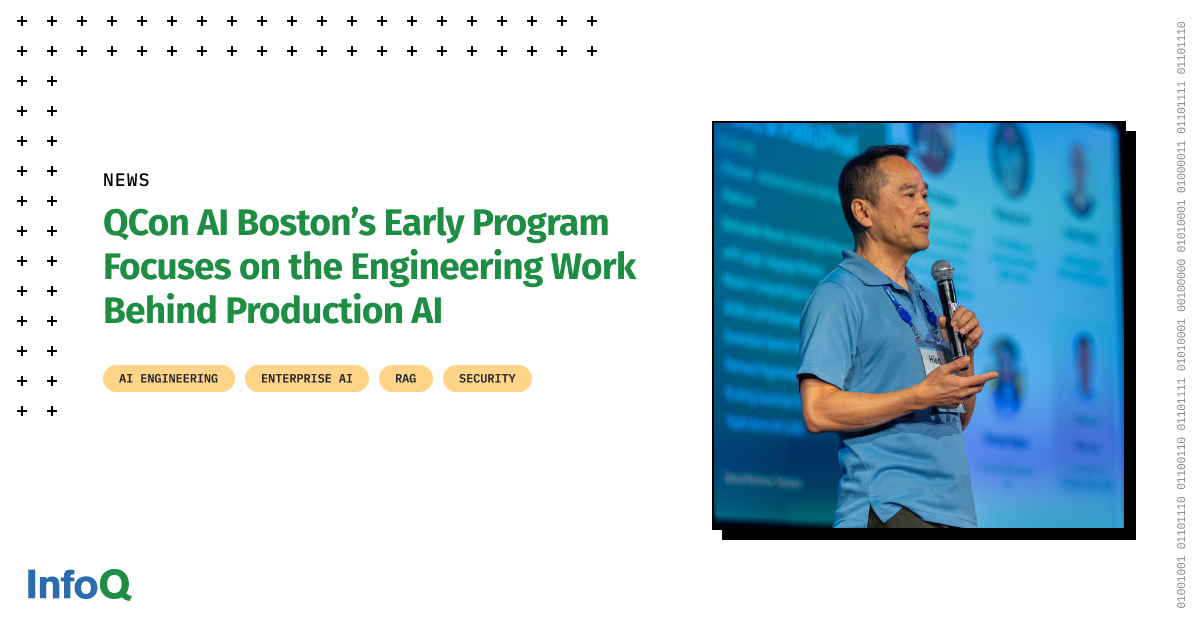Codetown
Codetown ::: a software developer's community
OrlandoJUG
Event Details
Time: June 24, 2010 from 6pm to 9pm
Location: DeVry University
Street: 4000 Millennia Blvd room 106 106 106
City/Town: Orlando
Website or Map: http://www.orl.devry.edu/camp…
Phone: Skype ::: mlevin77
Event Type: meeting
Organized By: Michael Levin
Latest Activity: Jun 25, 2010
Event Description
From IDE to Data Center - What Every Developer Should Know About Deploying Distributed Systems to Production
Taking a distributed system from development into a working production environment is a challenge that many developers take for granted. This talk will explore these challenges, especially scenarios that are not typically seen in a development setting.
Comment Wall
Comment
-
Comment by Michael Levin on June 25, 2010 at 7:41am
-
Thanks, Patrick! I know the community appreciated your presentations. You're welcome back anytime. I'd love it if someone would write up a summary...
-
Comment by Patrick Peralta on June 24, 2010 at 10:37pm
-
Attached are slides to IDE to Data Centerf
-
Comment by Patrick Peralta on May 17, 2010 at 8:34pm
-
We will also be giving away a copy of the recently released Coherence Book!
Notes
Welcome to Codetown!
 Codetown is a social network. It's got blogs, forums, groups, personal pages and more! You might think of Codetown as a funky camper van with lots of compartments for your stuff and a great multimedia system, too! Best of all, Codetown has room for all of your friends.
Codetown is a social network. It's got blogs, forums, groups, personal pages and more! You might think of Codetown as a funky camper van with lots of compartments for your stuff and a great multimedia system, too! Best of all, Codetown has room for all of your friends.
Created by Michael Levin Dec 18, 2008 at 6:56pm. Last updated by Michael Levin May 4, 2018.
Looking for Jobs or Staff?
Check out the Codetown Jobs group.
InfoQ Reading List
QCon AI Boston’s Early Program Focuses on the Engineering Work Behind Production AI

As teams move AI from pilots to production, the hard problems shift from demos to dependability. The first confirmed talks for QCon AI Boston (June 1–2) focus on context engineering, agent explainability, reasoning beyond basic RAG, evaluation, governance, and platform infrastructure needed to run AI reliably under real-world constraints.
By Artenisa ChatziouGitHub Data Shows AI Tools Creating "Convenience Loops" That Reshape Developer Language Choices

GitHub’s Octoverse 2025 report reveals a "convenience loop" where AI coding assistants drive language choice. TypeScript’s 66% surge to the #1 spot highlights a shift toward static typing, as types provide essential guardrails for LLMs. While Python leads in AI research, the industry is consolidating around stacks that minimize AI friction, creating a barrier for new, niche languages.
By Steef-Jan WiggersCloudflare Debuts Markdown for Agents and Content Signals to Guide AI Crawlers

Cloudflare has introduced “Markdown for Agents,” a feature that lets AI crawlers request Markdown versions of web pages. The company pairs the feature with a proposed “Content Signals” mechanism that lets publishers declare whether their content may be used for AI training, search indexing or inference.
By Matt FosterPresentation: What I Wish I Knew When I Started with Green IT

Ludi Akue discusses how the tech sector’s rising emissions impact our global climate goals. Drawing from her experience as a CTO, she explains seven key lessons for implementing Green IT. She shares insights on LCA assessments, the paradox of microservices, and why FinOps doesn’t always equal green.
By Ludi AkueVue Router 5: File-Based Routing Into Core with No Breaking Changes

Vue Router 5.0 has integrated unplugin-vue-router into its core, enhancing file-based routing and TypeScript support. This transition release boasts no breaking changes, simplifies dependencies, and introduces experimental features like data loaders and improved editor tooling. Ideal for Vue.js developers, it positions itself as a bridge to the upcoming ESM-only version 6.
By Daniel Curtis
© 2026 Created by Michael Levin.
Powered by
![]()
RSVP for OrlandoJUG to add comments!
Join Codetown